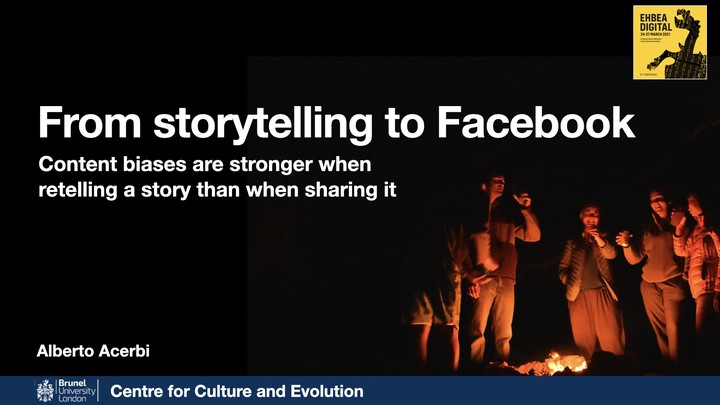From storytelling to Facebook. Content biases are stronger when retelling a story than when sharing it.

Abstract
Objective: Cultural evolution researchers use transmission chain experiments to investigate which content is more likely to survive when transmitted from one individual to another. Results from these experiments have been extended to real-life cultural domains, such as online misinformation or urban legends. However, a crucial difference between online transmission and these experiments is that participants in transmission chains need to understand, memorise, and reproduce the content, while an online “share” simply involves the willingness to do it. Does this difference influence which content is successful?
Methods: Two fully preregistered online experiments (https://osf.io/wf7pd). The first experiment (N=540) tests whether negative content, threat-related information, and information eliciting disgust are better transmitted than their neutral counterpart in a traditional transmission chain setup. In the second experiment (N=600), the same material is used, but participants are asked whether they would share or not the content in two conditions: in a large anonymous social network, or with their friends, in their favourite social network.
Results: Experiment 1 confirmed that attractive content is better transmitted than its neutral counterpart, for all three types of content. Experiment 2 instead showed that, out of six possibilities (2 conditions X 3 contents), in only one the attractive content was shared more than the non-attractive one, i.e. negative content in anonymous sharing.
Conclusion: Content biases are stronger when retelling a story than when sharing it.